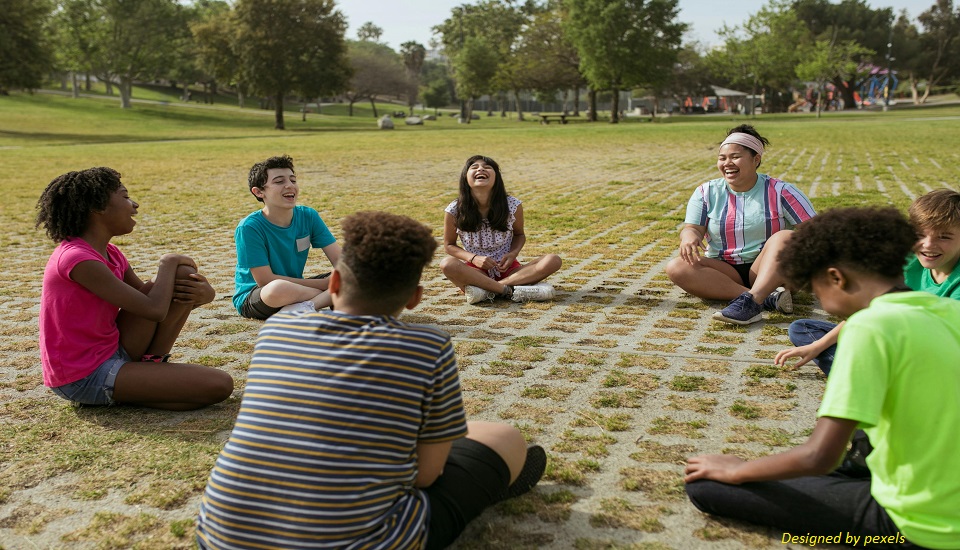How To Make Language Learning Feel Natural
21st April 2025

Learning a new language can often feel boring for students. As a TEFL teacher, do you often see your students getting stuck doing memory exercises, grammar rules, and the same word lists over and over? Seems like they are learning the language the hard way without understanding its use in everyday life.
But what if there were better ways to language practice techniques? What if you had solutions to make English classes more fun, interesting, and useful for your students?
Creating an Immersive Environment in Your Classroom
The first step to making language practice feel natural is setting up a classroom that feels like real life. Think how people learn a language when visiting a country where everyone speaks it. They hear and use it everywhere- in shops, restaurants, asking for help, and more. You can bring this same feeling to your classroom by using real-life situations.
Teachers who completed a Diploma in English Language Teaching agree on the importance of pretend play activities. Ask your students to act out buying food at a restaurant or shopping at a market. This makes English seem useful right away, not just something from a textbook.
Another good method is task-based language learning. Instead of just teaching separate language points, give students meaningful jobs that make them use the language to solve problems.
For example, students can plan a make-believe trip, set up a class party, or discuss which hobbies are best. These tasks need real talking and listening, which makes language learning feel less like memorizing and more like having real conversations.
Using Technology to Make Language Learning Feel Interesting and Real
Today, we are surrounded by computers and smartphones. Technology is everywhere. There are many apps, websites, and tools made to copy real-life language use, and using them in your lessons can make learning much better for your students.
There are several online apps that help students practice new languages through fun, game-like activities. Your students can focus on everyday language situations like ordering food, traveling, and chatting with other users.
Language exchange websites are also quite helpful. With online sites students can talk with native speakers. This person-to-person talking is key to making language practice feel natural and alive.
If you want to take a level higher, try using Virtual Reality (VR) in your lessons. VR lets students practice English in fake but realistic places, from coffee shops to airports to stores- making it one of the best ways to practice naturally.
Forming Peer Groups Improve Language Practice
Learning a language is easier when done with others. In fact, working with others can make the process much more natural.
Think about how children learn their first language. They are always surrounded by people who help them practice, fix their mistakes, and cheer them on. The same idea works for learning a second language.
When students work together on language tasks, they get to use the language in a more relaxed, friendly setting. Group talks, friendly arguments, and pretend play activities let students practice with their friends and learn from each other's strong and weak points. This builds confidence and helps them remember what they learn.
A simple but powerful activity is pairing students up. Also, getting feedback from classmates can improve language practice. Because feedback from friends makes learning less about formal corrections and more about working together.
Benefits of Natural Language Practice
Now that you know how to make English practice feel more natural, let's talk about why it is good.
- When students use the language in real situations, they're more likely to remember it. Studies show that people remember 80% of what they do, compared to only 10% of what they read or hear. This means that the more students use the language in practical ways, the more likely they are to remember it.
- When students practice using a language in real-world settings, they feel more ready and confident to use it outside the classroom. This confidence leads to better talking skills and a desire to keep learning.
- Students are more motivated when they see why what they are learning matters. Task-based learning, working with friends, and using real materials show students that the language they are learning isn't just schoolwork—it's a tool they can use in the real world. This motivation makes them practice more and get better results.
Bottom Line
Educators who have completed the 220 Hours International TEFL course believe language learning should be enjoyable and practical. The more natural it feels, the more your students will want to engage and improve their skills. Ready to make your students more confident, motivated, and successful in their English-learning journey?